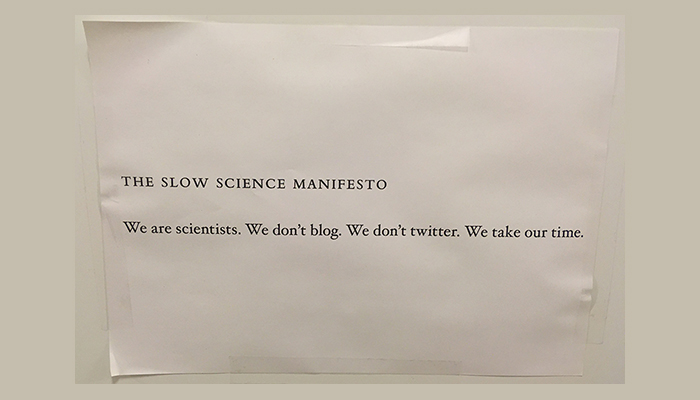One of the earliest events of vEGU2021 was a debate on slow science organized by three early career scientists, with four invited speakers, Withney Behr, Valeria Cigala, Stuart Lane and Doerthe Tetzlaff. Before following this debate at vEGU21, I only knew the above door posting (on Stuart’s office door) and did not dig more into what is actually behind the movement – in my understanding it was sim ...[Read More]
Brian Berkowitz (2021 John Dalton Medallist) on modelling fluid flow and chemical transport in hydrology: complexity vs. simplicity

The EGU 2021 John Dalton Medal of the EGU Division on Hydrological Sciences was awarded to Brian Berkowitz for his seminal contributions to analysis of flow and anomalous transport in natural porous and fractured media, with pioneering experimental methods and novel conceptual frameworks. His medal lecture was presented at the online vEGU 2021 meeting. We invited Brian to contribute a blog post to ...[Read More]
How do you picture female scientists?

You might have heard about the film “Picture a scientist” by Sharon Shattuck & Ian Cheney. It shows the personal struggle of three women to overcome gender barriers in science. In doing so, it highlights three key issues: prejudices and biases against women related directly to the history of the university that have never been challenged (this part of the film is subtly underlined by the histo ...[Read More]
Open your heart, science and data – and welcome Res. 42 by WMO
Boundaries and limits. Everyone had a pleasant and rich (hopefully) taste of these concepts in 2020. Time-wise, workwise, and heart-wise among many others. Openness, tolerance and love. Everyone rightfully acknowledged the dearness of these feelings (probably) at the utmost level, again in 2020 – a year quite likely to be remembered as one of those soul-shattering years in the human history. Why d ...[Read More]


